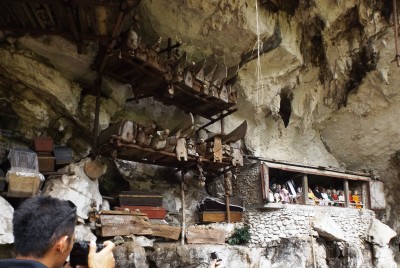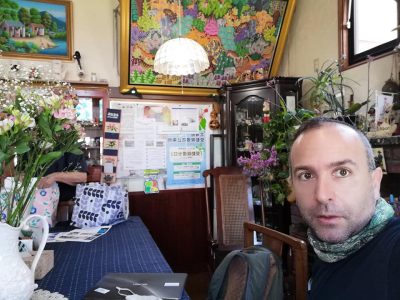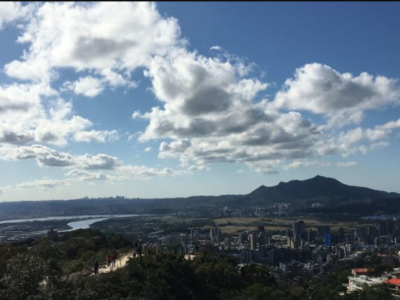
Hanging Graveyard at Toraja. Photo by Arpan Rachman. Used with permission.
Gorgeous views wrapped in a great culture that preserved local residents for generations by generations at Toraja, Indonesia. From my home in Makassar, we run distance of 350 kilometers to Toraja.
One of the amazing destinations is hanging graveyard. Coffins seemed to hang on wall of mountains rock. While, in the rock wall, next to hanger crates, there is a window box with door wide open.
Statues of those who die buried there, sitting as overseeing pilgrims and tourists. They wear suits and traditional clothes respectively. Nuance spread was so sacred and mystical….
One day in early December, I and ambassadors along with diplomats from several countries had visited regions Kete’ Kesu and Londa. Both sites are located at mountain ridge area, not far from Rantepao, capital of Tana Toraja regency.
At Kete’ Kesu, Londa, and a few other places like Batutumonga and Bori, residents treat their relatives who died not by bury, but hang in a coffin to rock wall.
When examined more closely, coffins were glance looks like a hanging: it depends on rock wall mediated only two poles of crossbar board propped on bottom. Not only one coffin containing corpse at bar lined up.
Oldest bodies of the hundreds of years, but there are also new graves. In addition, five intact skulls lined up beside stairs to mouth of cave. Near bones of an open coffin that may not have long fallen out of a hanger.
Entry into dark cave at Londa, a small coffin tucked in a cavity. “A baby buried there,” said a guide who was carrying a light lamp. He light dispeled dark in cave.
“The cemetery here shows very special culture. I am impressed,” said Vlastimil Samek, Interim Director of the United Nations Information Center. White-haired man is half bald keep beards. He claimed always have new experiences each time traveled around Indonesia.
Alice Mageza a woman wearing a green flowered dress. Black glasses and a hairband, Republic of Zimbabwe’s ambassador admitted as an enchanted charm Toraja culture.
Ambassador of Vietnam were captivated too. He wear plaid shirted who never leave his backpack. His name is Hoanh Anh Thui. “This cemetery is part of the great culture and they still kept from the past until now,” he said. “It means that this culture is conserved.”



